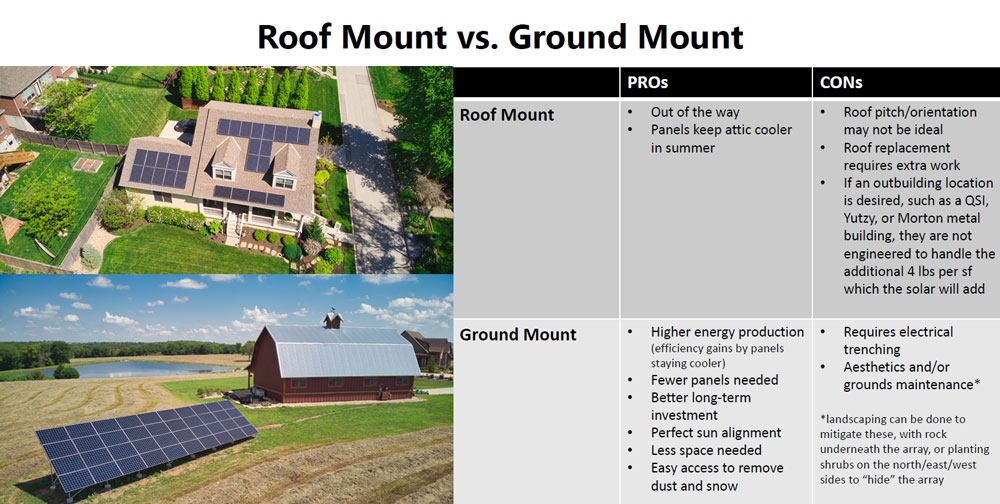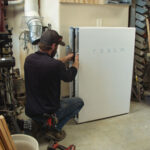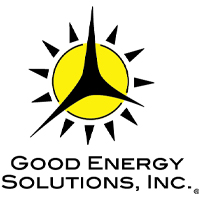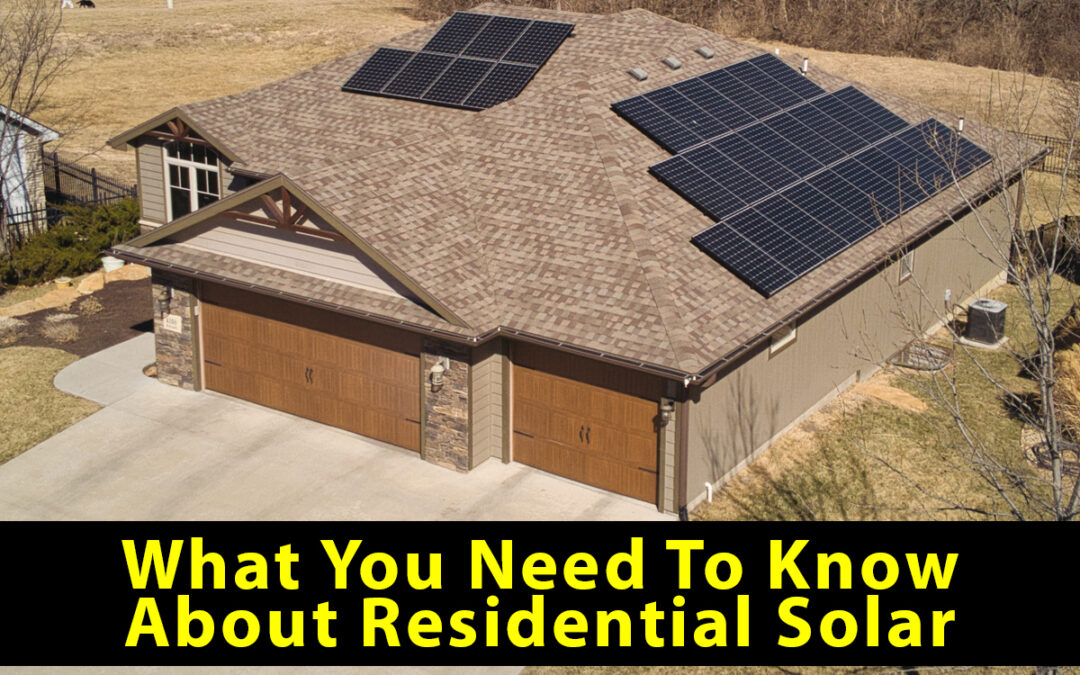There is a lot to understand when it comes to adding a solar panel system to your home. If you have been wondering how residential solar works or if it makes sense for your situation, here is a simple explanation.
Where to Install Your Solar Panels?
First you have decide where you want your solar panel installed on your home. You have two choices: on the roof or on the ground. Most homes located in neighborhoods or urban areas choose the roof, as this option usually costs less and takes up less usable space on your property. The downside to roof-mounted solar is the design of your panels is mostly based on orientation. For maximum efficiency, solar panels work best when they face south or when you can place panels on the west and east sections of the roof.
For homeowners with more land space, ground-mounted solar tends to make more sense. These types of systems typically are more efficient due to their ability to better orientate the panels to face south. Also, its easier to access the back of the panels for better upkeep and maintenance. The downside to this solution is the higher costs associated with building the structure the panels rest on and the increased installation costs.

How Residential Solar Panels Work
The way solar panels turn light into energy is fairly simple. When sunlight hits a solar panel, energy is captured within photovoltaic cells and then sent to an inverter. The inverter converts the energy from direct current (DC) electricity to usable alternating current (AC) electricity. Most of the electronics and appliances in your home operate using AC electricity.
Unlike utilities like gas or water, the energy your solar panels generate has to go somewhere. It can’t sit on the wires like gas or water can rest inside of pipes. Whatever electricity you don’t use will either be sent back out onto the grid or stored in a battery like a Tesla Powerwall or SunPower Sun Vault if you have one installed in your home.

Residential Solar Saves Money
When it comes to your monthly expenses, electricity usually nears the top of most homeowners’ budgets. Like anything on the free market, with increased demand, the cost of electricity will continue to rise. As utilities have to pay for the production and expansion of the production of more electricity, the cost is passed on to homeowners. Especially in more highly populated areas, you can expect your electricity bill to rise throughout the years.
Residential solar panels help hedge your monthly electricity budget. When you generate your own electricity, you have to buy less energy from the utility. Once your initial investment is paid off, your solar panels will continue to generate free energy for the rest of their life.
Some power companies will actually buy back your unused power and then send it to other homes. That’s called net metering. Most of the time, the utility will give you a credit on your next bill for this excess power.
How Batteries Enchance Your Solar System
 Solar batteries have become more common for residential installations. To put it simply, they store excess electricity generated by your solar panels. That stored energy can power your home when your solar panels aren’t generating energy, including nights and cloudy days. They also can power your home when the power grid goes down.
Solar batteries have become more common for residential installations. To put it simply, they store excess electricity generated by your solar panels. That stored energy can power your home when your solar panels aren’t generating energy, including nights and cloudy days. They also can power your home when the power grid goes down.
It’s important to note that in most installations without a battery your home will not be able to utilize the electricity generated from your solar panels when the grid goes down. Because your solar panel system is wired into your electric company’s grid, they will stop producing energy if the power goes out for any reason. This is a safety mechanism that will allow the utility company’s workers to repair the lines during an outage without fear of being electrocuted. AC-coupled batteries like the Powerwall and SunVault automatically disconnect your system from the grid when the power cuts out and use the solar panel system or battery bank to power your critical loads. This allows your solar panels or battery to operate as a code-compliant off-grid electrical system until the utility company can turn your power back on.
Learn More About Solar with This Video
Recently we had the opportunity to appear on a syndicated PBS show called My World Too. In this segment, one of our solar consultants and a former customer explain how solar works with your home, some of the monetary advantages and how this clean technology helps the environment.
 Our mission at Good Energy Solutions is to provide our customers with honest, real solutions to reduce their fossil fuel consumption and lower their long term energy costs. Our combination of hands-on experience, education, and outstanding customer service make our company the clear choice to help you achieve your energy goals.
Our mission at Good Energy Solutions is to provide our customers with honest, real solutions to reduce their fossil fuel consumption and lower their long term energy costs. Our combination of hands-on experience, education, and outstanding customer service make our company the clear choice to help you achieve your energy goals.
Founded in 2007 by Kevin and Shana Good, Good Energy Solutions has earned a reputation for our expert reliable service, long workmanship warranties, and quality commercial and residential solar installations.
We are engineers and craftsmen designing for efficiency while keeping aesthetics and longevity in mind. Because of our installation quality and customer service, Good Energy Solutions' solar panel systems feature some of the longest product and service warranties in Kansas and Missouri. Also, we have more NABCEP® Certified Solar Professionals on staff than any other company in Kansas or Missouri. To achieve this certification, PV installers must demonstrate that they possess extensive solar PV installation experience, have received advanced training, and passed the rigorous NABCEP certification exam.
If you would like to know more about solar power for your home or business, contact us here.

